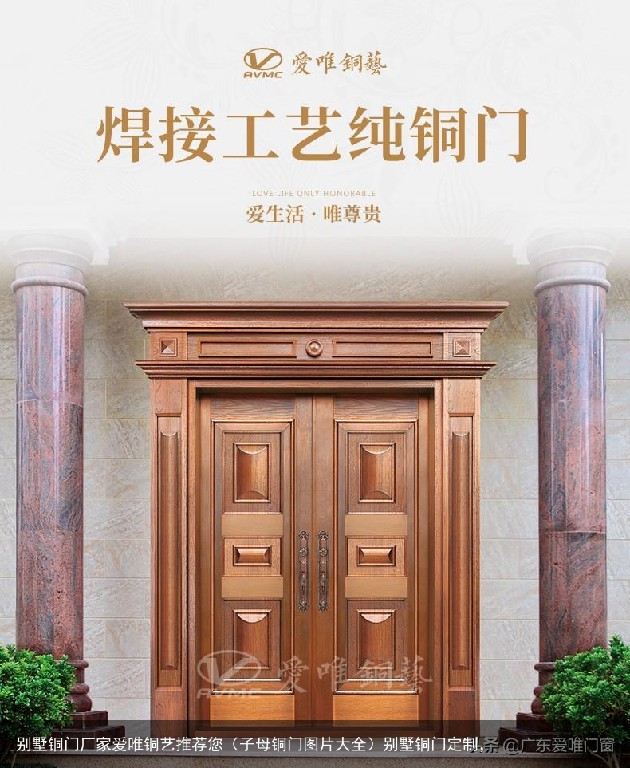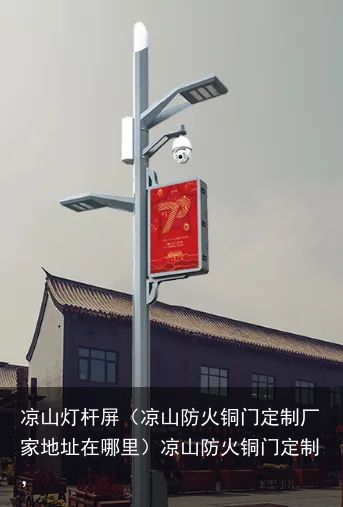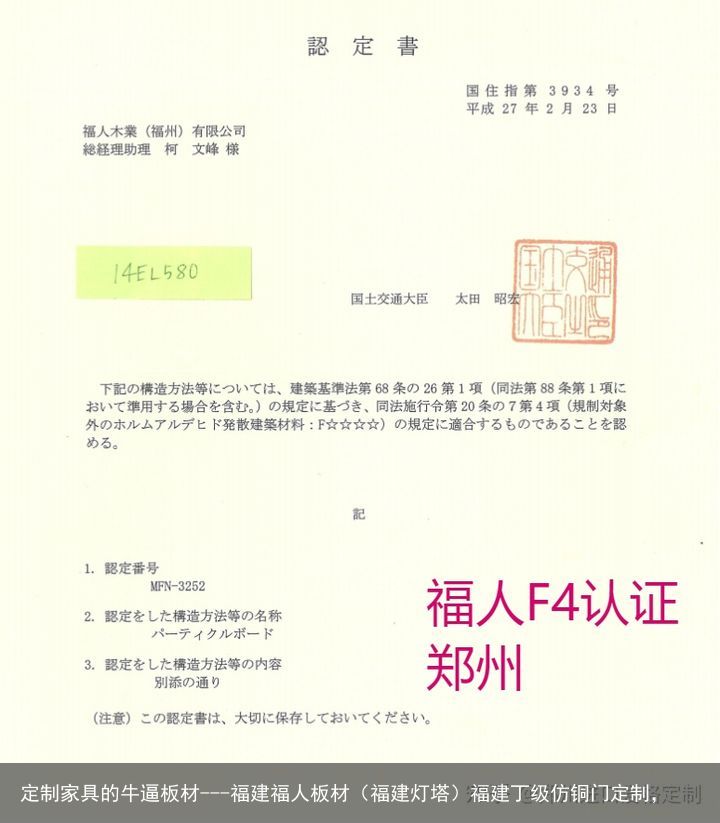中华豪门—五花八门,大有门道(洛阳铜材经销商电话)洛阳定制真铜门报价,
本期编辑/开鸿顺
Yashe Studio
———————————
我国古代住宅文化中有“一门二房三客厅”之说,可见大门对家运起到非常重要的作用。
There is a saying of "one door, two rooms and three living rooms" in ancient Chinese residential culture, which shows that the gate plays a very important role in home transportation.
门根据制作材料,可以分为木门、柴门、铁门和铜门;门根据表面颜色与装饰,可以分为原色门、红门(朱门)、黄门、白门、黑门以及雕花门等等。
The door can be divided into wooden door, firewood door, iron door and copper door according to the production materials; According to the surface color and decoration, doors can be divided into primary color doors, red doors (red doors), yellow doors, white doors, black doors and carved doors.
大门是家庭通往社会的必经之处,古时有着高贵与低贱的悬殊区分,富贵人家谓之豪门,富贵人家的孩子自然就是豪门子弟;贫穷人家谓之寒门,贫穷人家的学生往往称之为寒门学子。
The gate is the only way for a family to enter the society. In ancient times, there was a great difference between nobility and lowliness. The rich and noble families were called the rich families, and the children of the rich and noble families were naturally the children of the rich families; Poor people call them poor students, and students from poor people often call them poor students.
人们通过门窗,认识和接触外面的世界。古往今来,文人墨客们吟诗作画,将门写进诗里,绘入画中,留下了许多精彩绝伦的篇章。
People know and contact the outside world through doors and windows. Throughout the ages, literati and writers wrote poems and painted pictures, wrote the door into poems and paintings, leaving many wonderful chapters.
杜甫:朱门酒肉臭,路有冻死骨。
朱门,指古代王侯贵族的府第大门漆成红色,以示尊贵,后来以“朱门”泛指富贵人家。
Zhumen refers to the doors of ancient princes and nobles houses painted red to show their dignity. Later, "Zhumen" generally refers to rich and noble families.
晋朝葛洪在其《抱朴子·嘉遯》里有:“背朝华於朱门,保恬寂乎蓬户”之句。
Ge Hong in the Jin Dynasty wrote in his "Baopuzi Jiatun": "Back to Zhumen, keep peace and stay in the Penghu".
“朱门酒肉臭,肉有冻死骨”出自杜甫的《自京赴奉先县咏怀五百字》,意思是贵族人家里的酒肉吃不完都放臭了,穷人们却在街头因挨饿受冻而死。
"The wine and meat of Zhumen stink, and the meat has frozen bones" is from Du Fus "Five Hundred Words of Chanting Huai from Beijing to Fengxian County", which means that the wine and meat in the nobles house stink when they cant eat enough, but the poor people die in the street because of hunger and cold.
“朱门”与“豪门”、“侯门”意思相近。
"Zhumen" is similar to "Haomen" and "Houmen".
与豪门有关的古诗词有唐朝诗人司马扎的《蚕女》:
The ancient poems related to the rich families include Silkworm Girl by Tang Dynasty poet Simaza:
“养蚕先养桑,蚕老人亦衰。苟无园中叶,安得机上丝。妾家非豪门,官赋日相追。鸣梭夜达晓,犹恐不及时。但忧蚕与桑,敢问结发期。东邻女新嫁,照镜弄蛾眉。”
与“侯门”有关的古诗词有晚唐风流才子杜牧《洛阳》:
The ancient poems related to "Hou Men" include Luoyang written by Du Mu, a talented scholar in the late Tang Dynasty:
文争武战就神功,时似开元天宝中。已建玄戈收相土,应回翠帽过离宫。侯门草满宜寒兔,洛浦沙深下塞鸿。疑有女蛾西望处,上阳烟树正秋风。
还有唐朝诗人崔郊的《赠去婢》“一入侯门深似海,从此萧郎是路人”。
There is also the Tang Dynasty poet Cui Jiaos "Give Your Maidservant". "Once entering the Marquis Gate, it is as deep as the sea. Since then, Xiao Lang has been a passer-by.".
林昉:新笋绿沿坡,蓬门谁见过。
蓬门 (宋)林昉新笋绿沿坡,蓬门谁见过。社寒来燕少,晚雨落花多。瘦骨诗医俗,衰容酒借和。故园空有梦,客路正风波。
蓬门,用蓬草编成的门,借指贫苦人家。这首五律诗《蓬门》,应该是描写林昉客居异地乡村,早春二月,咋暖还寒,基本上还没有看到春燕归来,但雨后春笋拨地而起,落英缤纷。
Pengmen, a door made of tarpaulin, refers to poor people. This pentameter poem "Pengmen" should describe Lin Fangs guest residence in a different country. In early spring and February, when it was still warm and cold, the spring swallows have not basically returned, but they have sprung up after a rain and fallen in profusion.
林昉寄居的人家虽然不甚富裕,但也是耕读之家,不仅知书达礼,还有把酒吟诗的雅兴。故乡遥远,战乱频仍,在这样的蓬门之家生活,其实可以知足常乐了。
Although Lin Fangs family is not very rich, it is also a home of farming and reading. It not only knows how to read books, but also has the elegant taste of drinking and intoning poems. My hometown is far away, and wars are still frequent. Its really satisfying to live in such a Pengmen family.
与“蓬门”有关的诗句还有南北朝谢庄《怀园引》“青苔芜石路,宿草尘蓬门”;
There are also poems related to "Pengmen" in the Huaiyuan Guide by Xie Zhuang of the Northern and Southern Dynasties, "moss on the stone road, and grass on the Pengmen";
唐朝诗圣杜甫《客至》“花径不曾缘客扫,蓬门今始为君开”;
The poem "Visitors Arrival" by Du Fu, the poet of the Tang Dynasty, "The path of flowers was never swept by visitors, and the Pengmen has been opened for you since then";
唐朝白居易《小庭亦有月》“长跪谢贵客,蓬门劳见过”;
Bai Juyi of the Tang Dynasty, "There is a Moon in a Small Courtyard", "Long kneel to thank distinguished guests, Pengmen Lao has seen it";
唐朝秦韬玉《贫女》“蓬门未识绮罗香,拟托良媒益自伤”。
In Poor Girl written by Qin Taoyu of the Tang Dynasty, "Pengmen did not know the fragrance of beautiful flowers and intended to hurt themselves by good media".
而与“蓬门”意思相近的,还有“柴门”,即用木柴做的门,也是借指清贫人家。
Similar to the meaning of "Pengmen", there is also "Chaimen", a door made of firewood, which also refers to poor people.
唐朝诗人刘长卿有《逢雪宿芙蓉山主人》:“日暮苍山远,天寒白屋贫。柴门闻犬吠,风雪夜归人。”
Liu Changqing, a poet of the Tang Dynasty, once wrote "Sleeping at the master of Furong Mountain in the snow": "The mountains are far away at dusk, and the white houses are poor in cold weather. When the dogs bark at the firewood gate, they return at night in the snow."
苏轼:谁道人生无再少?门前流水尚能西!
浣溪沙·游蕲水清泉寺宋 · 苏轼山下兰芽短浸溪,松间沙路净无泥,萧萧暮雨子规啼。谁道人生无再少?门前流水尚能西!休将白发唱黄鸡。
苏轼贬谪黄州时曾与医人庞安时同游当时的蕲水县清泉寺,有感而发,创作了这首词。
When he was relegated to Huangzhou, Su Shi once visited Qingquan Temple in Qishui County with Pang Anshi, a doctor.
该词通过对清泉寺四周幽雅景物的描写,阐述了人生在世应该珍惜时光、有所作为的道理,如果虚度光阴、暗自嗟叹,是没有任何意义的。
Through the description of the elegant scenery around the Qingquan Temple, the word expounds the truth that we should cherish time and make a difference in life. It is meaningless to waste time and groan secretly.
“谁道人生无再少,门前流水尚能西”中的“门”,应该是指寺庙之门,一般庙宇建筑以及大门都是黄色,与皇家颜色相似。
The "gate" in "Who knows that life is never too little, and the flowing water in front of the gate can still flow to the west" should refer to the gate of the temple. General temple buildings and gates are yellow, similar to the royal color.
与“寺门”、“庙门”相关的古诗词还有唐朝著名苦吟诗人贾岛《题李凝幽居》有“鸟宿池边树,僧敲月下门”;
The ancient poems related to the "temple gate" and "temple gate", as well as Jia Dao, a famous poet of the Tang Dynasty, who wrote about Li Nings seclusion, said that "birds stay in the trees by the pool, while monks knock at the moon gate";
唐朝“丑男”诗人宋之问《灵隐寺》“鹫岭郁岧峣,龙宫锁寂寥。楼观沧海日,门对浙江潮。桂子月中落,天香云外飘”等等。
Song Zhiwen, an "ugly man" poet of the Tang Dynasty, wrote "Lingyin Temple", "The vulture ridge is full of gloom, the dragon palace is locked in solitude, the building looks at the sea day, the door faces the Zhejiang tide, the laurel son is at the middle of the moon, and the fragrance of heaven is floating outside", and so on.
华夏历史,源远流长;中华文化,博大精深。
China has a long history; The Chinese culture is broad and profound.
单就一个“门”字,就有诸多说道讲究。而与门有关的古诗词,则更是五花八门,异彩纷呈。
Just a word "door", there are many people who are particular about it. The ancient poems related to the door are more colorful.
在古诗词里,有的门庭若市,熙熙攘攘;有的门可罗雀,冷冷清清。有的大门紧闭,高墙深院,神秘莫测;有的大门洞开,长驱直入,一往无前。
In ancient poetry, some people are crowded and bustling; Some of them are deserted. Some doors are closed, walls are deep and mysterious; Some of the gates are open, driving straight in.
 支付宝扫一扫
支付宝扫一扫 微信扫一扫
微信扫一扫









